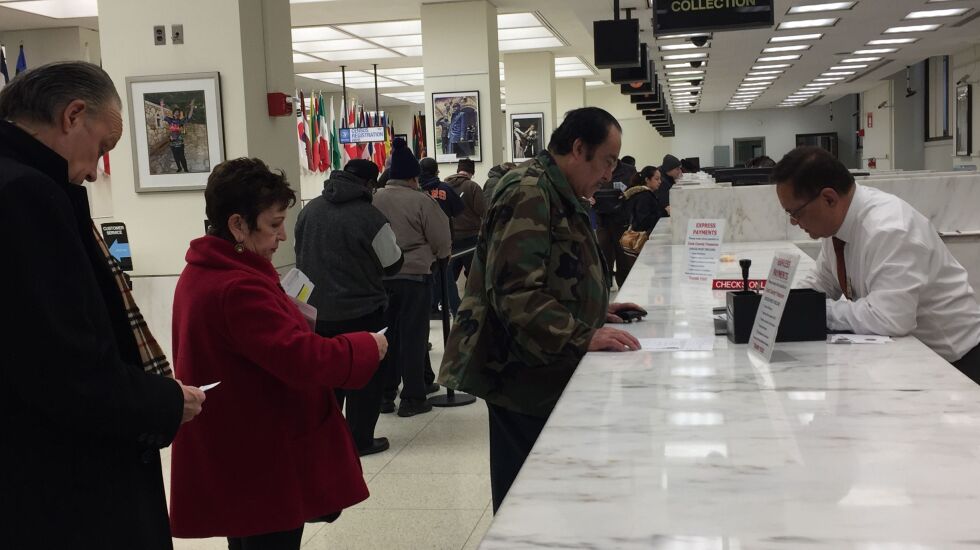
Cook County discriminates against Black and Latino residents by not compensating them when they lose their homes after failing to pay property taxes, a lawsuit claims.
The suit, filed Thursday in federal court by two low-income Black residents and two community groups, alleges that the county’s delinquent property tax sales process widens “the racial wealth gap.”
The lawsuit seeks class-action status and names Cook County and its treasurer, Maria Pappas, as defendants.
The lawsuit seeks to make illegal the county’s method of conducting the tax sale and to require compensation for homeowners who lost their homes.
“Many low-income homeowners have just one asset to pass on to future generations: the value of their home,” said John Bouman, director of Legal Action Chicago and co-counsel for the plaintiffs.
“By depriving homeowners who fail to pay their property taxes of the entire value of this asset, and by disproportionately affecting Black and Latino homeowners, the tax sale system widens the racial wealth gap that has plagued this region for years,” Bouman said in a statement.
In Illinois’ current system, when a homeowner falls behind on paying property taxes, a third-party tax buyer can purchase the outstanding debt and get a lien on the property.
The homeowner has 30 months to pay back the tax buyer on those taxes plus interest and fees, which can sometimes be three times as much as what was originally owed. If the homeowner fails to pay it back in time, the tay buyer can seek to confiscate the property.
Three-quarters of properties offered in Cook County’s 2021 delinquent tax sale were in Black and Latino communities, even though those racial groups accounted for half of county residents, the lawsuit states.
The county has a mechanism to reimburse homeowners who lose their property, called an indemnity fund, but it is chronically underfunded, and homeowners take up to 10 years to receive payment.
The suit was filed by two Black, low-income homeowners, one of whom is Michael Bell.
Bell owned a home on East 100th Street in the South Deering neighborhood, the suit says. He inherited the home from his mother in 2017, and after losing his job at a car wash in 2018, fell behind on his property taxes.
In 2019, the county sold the taxes he owed — $1,649.67 — to a tax buyer who placed a lien on the home. Bell failed to pay back the tax buyer who, with interest and penalties, charged Bell more than $11,000.
Bell missed an April deadline and stands to lose his home. The lawsuit claims he should be compensated for the remaining equity of his home — the difference between the unpaid taxes and the value of the home.
Plaintiff Michelle Kidd owned a home in west suburban Maywood, which she bought in full for $230,000 in 2011 while working as a bus driver. In the mid-2010s she became disabled and fell behind on her property taxes.
A lien was put on her property in 2017, and after she failed to pay taxes, penalties and interest, the tax buyer moved to possess her house in January of this year. She was ordered to be evicted later that month, but paid rent to the tax buyer until she left the home in May.
A state commission in 1976 deemed Illinois’ practice of “total forfeiture” of property to tax buyers to be needlessly harsh and recommended replacing it with a “sale-surplus system” that would preserve home equity for the homeowners, the lawsuit states.
The 1976 commission found that the system, which remains in place to this day, lets the tax buyer reap “an unearned windfall at the expense of those who can least afford it.”
The suit lists two community groups as plaintiffs: the Southwest Organizing Project and the Logan Square Neighborhood Association.
Pappas’ office declined to comment on the lawsuit.
Pappas has been outspoken about how the property tax sale system is unfair. She has said her office is bound by Illinois law to hold the property tax sales.
The lawsuit will be handled by the Cook County state’s attorney’s office, Pappas’ office said.







